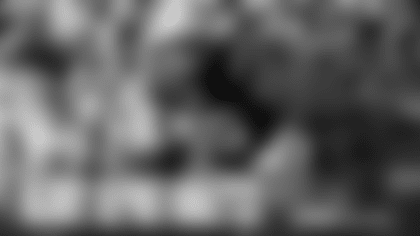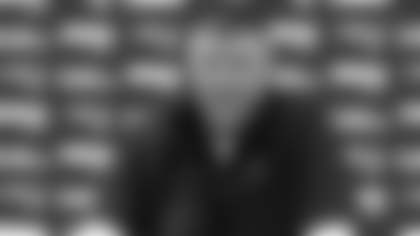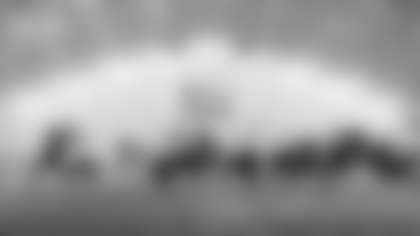To say the 1977 season was disappointing for the Patriots and their fans would be an understatement. After a brilliant 11-3 season in 1976, it was almost a forgone conclusion that New England would return to the playoffs and advance deep into the postseason. But a bitter holdout by two of the teams star players contributed to the team getting off to a rocky start, and by the time it had shrugged off its malaise and began to play superior football, it turned out to be too little, too late.
[

]()
The trouble started at the Pro Bowl in January, where Patriots offensive linemen John Hannah and Leon Gray compared their contracts with their peers in the AFC and came to the realization they were vastly underpaid. The two players hired notorious hard-liner Howard Slusher as their agent, and negotiations for new contracts got dicey. The two All-Pros walked out on their team before the start of the season.
Their absence was painfully noticeable. The Patriots struggled to beat the Kansas City Chiefs in the season opener, rallying from a 14-0 deficit to post a 21-17 victory. A week later the Pats dropped a 30-27 decision to the Cleveland Browns in overtime. Without Hannah and Gray the Patriots offense was not able to control the ball and the team struggled. The duo ended its 27-day walkout on Oct. 4 but did not play in a 30-27 loss to the New York Jets in Week Three.
Saddled with a 1-2 record, the Patriots were suddenly buoyed by the return of the All-Pro left side of their offensive line and started to resemble the 1976 team. They ripped off five consecutive wins to vault back into the division race — the most impressive of which came in Week Six against the undefeated Baltimore Colts.
But just when it seemed the Patriots were rolling to the division title, the lowly Buffalo Bills supplied what turned out to be a crushing defeat in Week Eight. The Bills had won only once in their last 16 games but upset New England, 24-14. The Patriots looked uninspired in the defeat, as Steve Grogan was intercepted four times and seldom-used Bills running back Roland Hooks rambled for 155 yards against the usually stalwart New England defense.
After a 17-5 loss to the Miami Dolphins in the Orange Bowl, the Patriots regrouped for a second time and ripped off four straight wins to climb back into the race. Over those four games, the defense allowed only a single touchdown in each game.
The season ended on a low note due to a strange quirk in the NFL's tie-breaking procedure. While the Patriots were busy knocking off the Dolphins 14-10 in a bitterly cold Schaefer Stadium in Week 13, the Detroit Lions were upsetting the Colts in the final seconds in Baltimore. This left all three of the AFC East leaders tied with identical 9-4 records. Despite having a game with the Colts in the season finale, losses to the Jets and Buffalo meant New England could not win the division tiebreaker against either team. The Lions upset win over Baltimore effectively eliminated the Patriots from playoff contention.
Playing for nothing but pride and a chance to knock the Colts out of the postseason, the Patriots raced to an early lead and seemed on the verge of ruining Baltimore's playoff hopes. Raymond Clayborn set a new team record by returning a Baltimore kickoff 101 yards for a touchdown to open the third quarter and give New England a commanding 21-3 lead.
[

]()
But in what seemed a microcosm of their season the Patriots lost their competitive fire and allowed the Colts to scratch their way back into the game. The Patriots still clung to a 24-23 lead with three minutes to play when fate and the officials again intervened. Linebacker Steve Zabel corralled Colts quarterback Bert Jones on a busted play and the ball popped loose. New England recovered the ball and seemingly had snuffed out the Colts last chance. But the referee inexplicably blew the play dead, which allowed Baltimore to retain possession of the ball. Moments later they punched across the winning touchdown in a 30-24 division-clinching victory.
For the second straight year the Patriots season had ended with a controversial call by a referee.

































